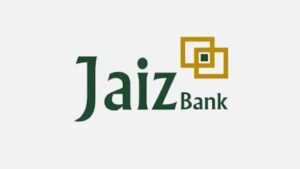
Naira plunges to N1,010/$1 as demand soars on black market
By Sodiq Adelakun
In a concerning development, the Nigerian naira on Tuesday has fallen to N1,010 per dollar on the black market, also known as the parallel segment of the foreign exchange market.
This represents a 0.19 percent decline compared to the previous day’s exchange rate of N1,008 per dollar.
The naira had remained stable against the dollar for four consecutive trading days before this recent depreciation.The depreciation of the naira against the dollar is not limited to the black market.
At the Investors. and Exporters’ (I&E) forex window, the naira also experienced a significant decline of 4.27 percent.
On Monday, the dollar was quoted at N773.54, compared to N741.85 on Friday and N775.20 on Thursday, according to data from the FMDQ.The weakening of the naira can be attributed to the rising demand for the greenback in the country.
This surge in demand for dollars has put pressure on the naira’s value, leading to its depreciation. The reasons behind this increased demand are not explicitly mentioned in the report, but it could be due to various factors such as import payments, capital flight, or a lack of confidence in the local currency.
However, the depreciation of the naira is a cause for concern as it can have several implications for the Nigerian economy. A weaker currency makes imports more expensive, which can lead to higher inflation and reduced purchasing power for consumers.
It can also make it more challenging for businesses to plan and invest, as the value of their earnings and assets may be eroded.
The Central Bank of Nigeria (CBN) has been implementing various measures to stabilize the naira and manage the foreign exchange market. However, these efforts seem to be facing challenges in the face of increasing demand for dollars. It remains to be seen how the CBN will respond to this latest depreciation and whether further measures will be taken to address the situation.
The recent depreciation of the naira against the dollar highlights the fragility of Nigeria’s foreign exchange market and the need for effective policies to maintain stability.
The government and the CBN will have to closely monitor the situation and take appropriate measures to ensure the naira’s value is protected and the economy remains resilient.
This is despite an increase in the daily FX market turnover by 74.39 percent to $96.58 million as of Monday October 9, 2023 from $55.38 million recorded on Friday.
CEO, Centre For the Promotion of Private Enterprise, Muda Yusuf said, the Central Bank of Nigeria (CBN) must ensure strategic and transparent intervention in the forex market to minimize volatility, as far as the reserves can support.
He said in addition to the I&E window, it has become necessary to create an autonomous window in the banking system where the currency can trade freely without any encumbrances. This is necessary to avert the diversion of remittances to other jurisdictions or the black market.
“We cannot afford to live in denial at this time,” he said.



